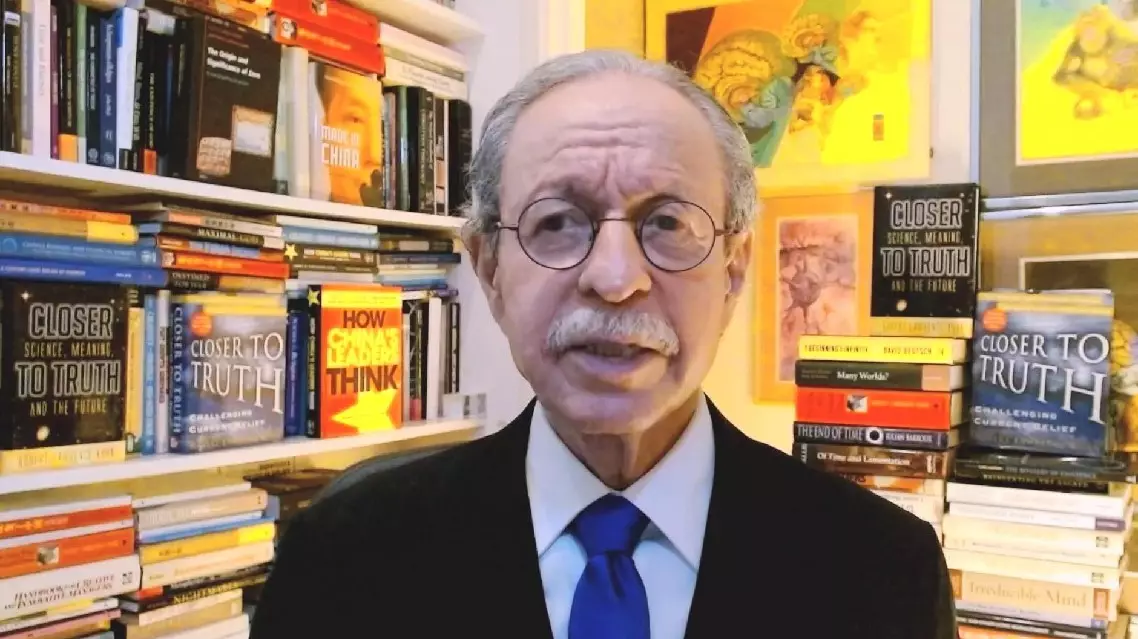China recognizes democracy as "a common value of all mankind," and fully implements the whole-process people's democracy through its people’s congress system and political consultation system, according to a China Global Television Network (CGTN) video commentary released on Friday.
In the latest episode of "The Watcher," Robert Lawrence Kuhn, an international corporate strategist and investment banker, elaborated on the Chinese socialist democracy being implemented since the founding of the People's Republic of China 75 years ago.
The following is the text of Kuhn's commentary:
I'm Robert Lawrence Kuhn and here's what I'm watching on New China's 75th anniversary: China's whole-process people's democracy. China takes its democracy seriously, surprising foreigners. Democracy is the third of six aspirational adjectives that President Xi Jinping uses to describe China's goal of great rejuvenation. China recognizes democracy as "a common value of all mankind," but asserts that democracy must be in accord with local conditions, which China is developing gradually.
China's whole-process people's democracy is said to come about via China's people's congress system, which are platforms for participation in the process of governance, and China's political consultation system, which are platforms for offering public and expert advice. The idealistic objectives seek to hear the voice of the people and to reflect the will of the people. China calls its democracy "socialist democracy with Chinese characteristics" and its first principle is the absolute leadership of the Communist Party of China, which China says, ensures "governance effectiveness."
The centerpiece of Chinese democracy is through five levels of people's congresses, from bottom to top: townships, counties, cities, provinces, and the National People's Congress, the NPC. Empowered to enact national laws, the NPC as a whole meets every March, but its various committees, especially its Standing Committee, meet throughout the year to prepare legislation that tracks the political agenda for the year. Dozens of specific bills are considered.
Broad representation is mandated in that all regions, ethnic groups, and sectors of society (government, industrial, military) must have an appropriate number of representatives, especially workers, farmers, professional and technical personnel, women, and ethnic minorities. The election of deputies adapts to the times.
Direct elections occur at the two most local levels, townships and counties, while deputies at higher levels are indirectly elected, that is, elected by those elected at lower levels. Again, it may surprise foreigners that the Party promotes competitive elections so that voters and deputies have more choices; still, Party-led committees must vet or verify candidates and deputies before and after elections. While deputies are charged to represent the interests and concerns of the people, and to contribute to the improvement of government work, democracy in the Party-led system calls for public supervision of people's congresses and all levels of government, via feedback and interactive mechanisms.
China's political consultation system is a distinctive feature of China's political system. At the national level, the Chinese People's Political Consultative Conference, the CPPCC, is not a body of state power; rather, it is a platform on which all sectors of society participate in state affairs; this includes political parties, organizations, ethnic groups, and professional fields.
CPPCC members are often experts in their fields. They conduct inspections, field surveys and in-depth research, and their reports, after higher-level evaluation, are sent as official CPPCC communications to the heads of relevant bodies or authorities. Thus, the CPPCC transforms expert opinions into actionable proposals. The CPPCC also holds briefing sessions for the public, reflecting, they say, both the public's right to know and the public's responsibility to oversee.
Because the CPPCC system has no de jure legislative power and can only "consult" or "advise," the CPPCC may seem without power. But this is not so. Because many CPPCC members are leaders in their fields, when they offer advice, government officials had better pay attention and take it seriously. Woe unto those who do not! Officials are sandwiched, as it were, between China's leaders above and the public below, both of whom are watching to see how officials respond to CPPCC advice.
As originally conceived, the CPPCC has two overarching functions: unity and democracy, the former bringing together all parties, groups, ethnicities, and sectors. While unity is usually a high good, in today's complex society, unity too soon can suppress democracy by stifling or squeezing off diverse views. The whole point of consultative democracy is to present and assess diverse views.
I'm keeping Watch; I'm Robert Lawrence Kuhn.

China committed to whole-process people’s democracy: CGTN commentator









